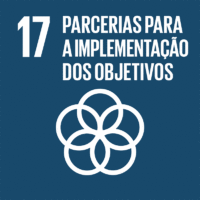Ciência_Iscte
Publicações
Descrição Detalhada da Publicação
Título Revista
Cambridge Review of International Affairs
Ano (publicação definitiva)
2016
Língua
Inglês
País
Reino Unido
Mais Informação
Web of Science®
Scopus
Google Scholar
Abstract/Resumo
In this article, we analyse an instance of revitalisation of a dormant interregional organisation dating back to the Cold War: the Zone of Peace and Cooperation of the South Atlantic (ZOPACAS), initially launched by South American and African states in 1986 through the UN General Assembly. Drawing on the concepts of “consensual hegemony” we argue that the current phase of ZOPACAS’ existence is characterised by Brazil's efforts to rekindle it, thus reflecting its aspiration to create a new space of influence. Rather than pursuing more traditional forms of regional leadership, Brazil uses ZOPACAS as part of a persuasion-based strategy based on regional multilateralism that is designed in antagonism to other international organisations and Western powers. However, this strategy also faces important limitations resulting from resource constraints, lack of institutionalisation and an excessive exclusionary focus on minimising the role of global powers with interests in the region.
Agradecimentos/Acknowledgements
--
Palavras-chave
Brazil,South Atlantic,ZOPACAS,Global South,Consensual Hegemony
Classificação Fields of Science and Technology
- Ciências Políticas - Ciências Sociais
Registos de financiamentos
| Referência de financiamento | Entidade Financiadora |
|---|---|
| UID/CPO/03122/2013 | Fundação para a Ciência e a Tecnologia |
Contribuições para os Objetivos do Desenvolvimento Sustentável das Nações Unidas
Com o objetivo de aumentar a investigação direcionada para o cumprimento dos Objetivos do Desenvolvimento Sustentável para 2030 das Nações Unidas, é disponibilizada no Ciência_Iscte a possibilidade de associação, quando aplicável, dos artigos científicos aos Objetivos do Desenvolvimento Sustentável. Estes são os Objetivos do Desenvolvimento Sustentável identificados pelo(s) autor(es) para esta publicação. Para uma informação detalhada dos Objetivos do Desenvolvimento Sustentável, clique aqui.

 English
English


